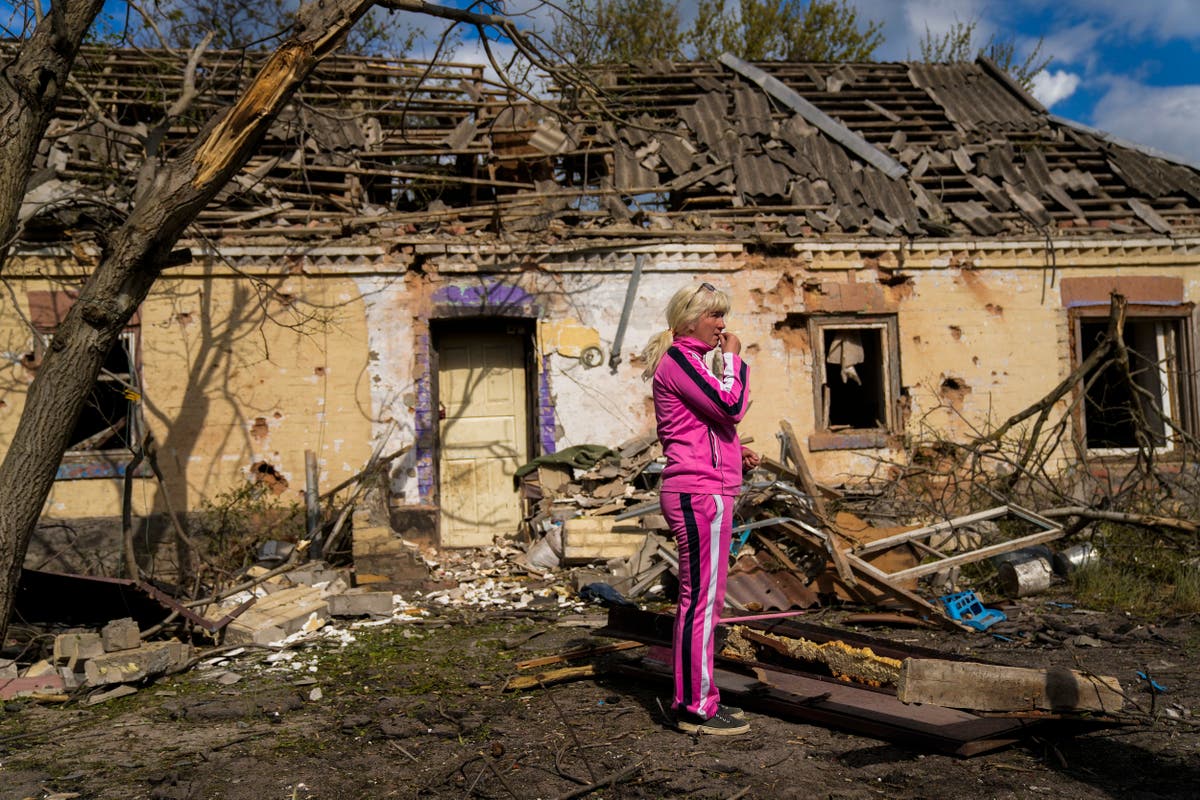In Ukraine, surviving when your home is blasted

The explosions started in the middle of the night, shaking the house to its foundations. Roof timbers splintered and windows shattered, sending shards of glass hurtling above three sleeping children into the opposite wall.
It was around 2 a.m. and Iryna Martsyniuk had stayed up late watching a video on her computer while her children slept. She didn’t know what was hitting her house —- mortars, rockets or missiles. All she knew was that, in the dead of night, everything was exploding.
It wasn’t the first time the Ukrainian village of Velyka Kostromka, just a few kilometers (miles) from the southern front line in the war in Ukraine, was being hit. But Thursday’s early morning attack was the most intense and most widespread.
Around 20 houses were damaged, including three irreparably, and two people were lightly injured, said Olha Shaytanova, the head of the village. Later in the day, explosives experts blew up at least one undetonated device they found embedded in a field. Remnants of other devices lay scattered in the village.
Locals picked up jagged pieces of shrapnel. A farmer raked over a small crater left by an explosion in his potato field.
In Martsyniuk’s home, an initial blast woke up the children. In tears, 7-year-old Maksym hid under his blanket. His twin sister Karyna and their 6-year-old brother Sasha clasped their mother in terror as she tried to calm them.
“Then it all started,” said Martsyniuk. “There were flashes everywhere. The windows smashed, there was smoke everywhere.”
The roof splintered and collapsed but the ceiling above their heads held fast.
She grabbed the children and ran toward the home’s entrance. “But the corridor wasn’t there anymore. Instead, we saw the starry night.”
Five times they tried to leave the house and five times they failed, as more ordinance exploded around them.
The family hid inside, terrified, until the explosions subsided. But then they found they couldn’t get out the front door. Instead, they climbed out of the house through a back window and ran down the road to a neighbor’s home, where they hid in the basement. None of them was hurt.
The family’s home is now likely beyond repair. A once-towering walnut tree in the front garden lies splintered and broken. The roof has caved in and piles of rubble lie around the front door. Inside, a child’s drawing of a happy family outside a yellow house — just like Martsyniuk’s — lies on the floor, shrapnel tears in the paper.
Martsyniuk is now staying with relatives in the village. She’s thinking of going to the nearby city of Kryvyi Rih to rent an apartment while she figures out what to do next.
Elsewhere in the village, resident Anatolii Virko picked up pieces of shrapnel scattered around fields and homes and surveyed the damage to an abandoned house whose property he uses for his beehives.
He pulled back plastic sheeting to reveal an old Russian piano standing in the front yard. Placing the pieces of shrapnel carefully on the top of the piano, he began to play.
“Yes, it’s a war,” he said. “But music is eternal.”
___
Follow all AP stories on the war in Ukraine at https://apnews.com/hub/russia-ukraine.






